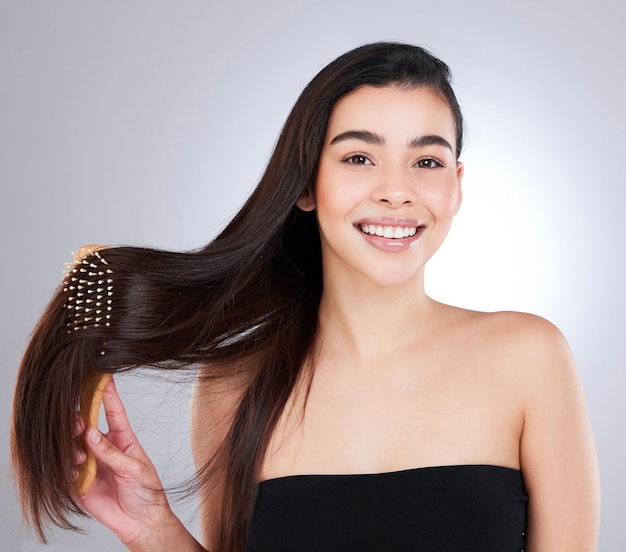Hair loss and thinning hair are common concerns for many people worldwide. While conventional treatments like minoxidil and finasteride are available, a significant number of individuals seek natural alternatives due to concerns about side effects or a preference for holistic approaches. Various natural remedies have been researched for their efficacy in promoting hair growth and improving hair strength. This article explores some of the most proven natural medicines for hair growth, supported by scientific studies.
1. Saw Palmetto (Serenoa repens)
Saw palmetto is a palm-like plant with berries that have been used for centuries in traditional medicine. It is particularly known for its role in promoting hair growth and preventing hair loss, especially in androgenetic alopecia (pattern baldness).
Mechanism of Action
Saw palmetto works by inhibiting 5-alpha-reductase, the enzyme that converts testosterone to dihydrotestosterone (DHT). Elevated DHT levels are associated with hair follicle miniaturization and subsequent hair loss.
Scientific Evidence
A study published in the “Journal of Alternative and Complementary Medicine” evaluated the effects of saw palmetto on hair growth. The study involved 100 men with mild to moderate androgenetic alopecia. Participants received either saw palmetto or finasteride for 24 months. Results showed that 38% of those treated with saw palmetto experienced increased hair growth, compared to 68% of those treated with finasteride.
Another study in “Phytotherapy Research” conducted a randomized, double-blind, placebo-controlled trial on 50 men with androgenetic alopecia. After 24 weeks, the group receiving a saw palmetto supplement showed significant improvement in hair density compared to the placebo group.
2. Rosemary Oil (Rosmarinus officinalis)
Rosemary oil is another natural remedy well-regarded for its hair growth-promoting properties. It is believed to improve blood circulation to the scalp, delivering essential nutrients to hair follicles.
Mechanism of Action
Rosemary oil enhances scalp circulation, has anti-inflammatory properties, and contains antioxidants that may protect hair follicles from damage.
Scientific Evidence
A study published in “Skinmed” compared the effects of rosemary oil and minoxidil 2% on hair growth in patients with androgenetic alopecia. After six months, both groups exhibited a significant increase in hair count, with no statistically significant difference between the rosemary oil and minoxidil groups. However, the rosemary oil group experienced fewer side effects, such as itchy scalp.
Another study in “Phytotherapy Research” tested the effects of rosemary oil on hair regrowth in mice with testosterone-induced hair loss. The study found that topical application of rosemary oil significantly promoted hair regrowth by blocking DHT binding to its receptor.
3. Peppermint Oil (Mentha piperita)
Peppermint oil is known for its cooling and soothing properties, but it also shows promise in promoting hair growth.
Mechanism of Action
Peppermint oil contains menthol, which increases blood flow to the scalp. It also has anti-inflammatory and antimicrobial properties that can support scalp health.
Scientific Evidence
A study published in “Toxicological Research” evaluated the effects of peppermint oil on hair growth in mice. The study found that topical application of peppermint oil led to a significant increase in dermal thickness, follicle number, and follicle depth, suggesting its potential for promoting hair growth.
4. Onion Juice (Allium cepa)
Onion juice is a traditional remedy for hair loss. Its high sulfur content is believed to improve blood circulation to the scalp and regenerate hair follicles.
Mechanism of Action
Sulfur is an essential component of hair keratin, and its application may provide the necessary building blocks for hair growth. Onion juice also has antibacterial properties that can help maintain a healthy scalp.
Scientific Evidence
A study published in the “Journal of Dermatology” assessed the efficacy of topical crude onion juice in patients with alopecia areata. The results showed that after six weeks, 87% of participants in the onion juice group experienced significant hair regrowth compared to only 13% in the control group.
5. Pumpkin Seed Oil (Cucurbita pepo)
Pumpkin seed oil is rich in nutrients like zinc, magnesium, and antioxidants, which are vital for healthy hair growth.
Mechanism of Action
Pumpkin seed oil is believed to block DHT production due to its phytosterol content. It also has anti-inflammatory properties that can support overall scalp health.
Scientific Evidence
A study published in “Evidence-Based Complementary and Alternative Medicine” investigated the effects of pumpkin seed oil in men with androgenetic alopecia. The study was a randomized, double-blind, placebo-controlled trial involving 76 men. After 24 weeks, those who took pumpkin seed oil had a 40% increase in hair count, compared to 10% in the placebo group.
6. Aloe Vera (Aloe barbadensis miller)
Aloe vera is well-known for its soothing and moisturizing properties. It is also used to promote hair growth and reduce scalp inflammation.
Mechanism of Action
Aloe vera contains proteolytic enzymes that repair dead skin cells on the scalp. It also acts as a great conditioner and leaves hair smooth and shiny.
Scientific Evidence
While direct clinical studies on aloe vera and hair growth are limited, its efficacy is supported by its known benefits for skin health and healing. A review in the “Journal of Chemical and Pharmaceutical Research” highlighted aloe vera’s role in reducing scalp inflammation and improving hair follicle health, which indirectly supports hair growth.
7. Ginseng (Panax ginseng)
Ginseng is a popular herb in traditional Chinese medicine, known for its various health benefits, including promoting hair growth.
Mechanism of Action
Ginsenosides, the active components in ginseng, are thought to increase the proliferation of dermal papilla cells in the scalp, which play a key role in hair growth.
Scientific Evidence
A study published in the “International Journal of Molecular Sciences” demonstrated that ginseng extract could promote hair growth in human dermal papilla cells by stimulating cell proliferation and preventing cell death. Another study in “Phytotherapy Research” found that ginseng extract improved hair density and thickness in patients with alopecia.
8. Green Tea (Camellia sinensis)
Green tea is rich in antioxidants, particularly epigallocatechin gallate (EGCG), which is beneficial for overall health, including hair growth.
Mechanism of Action
EGCG has been shown to inhibit the activity of 5-alpha-reductase, reducing the conversion of testosterone to DHT. It also has anti-inflammatory and antioxidant properties that support scalp health.
Scientific Evidence
A study published in the “Annals of Dermatology” investigated the effects of green tea extract on hair loss in mice. The study found that topical application of green tea polyphenols significantly promoted hair regrowth by stimulating hair follicle activity.
9. Coconut Oil (Cocos nucifera)
Coconut oil is widely used for its moisturizing properties and is believed to protect hair from damage and improve hair strength.
Mechanism of Action
Coconut oil can penetrate the hair shaft due to its low molecular weight and straight chain, preventing protein loss from hair. It also has antimicrobial properties that help keep the scalp healthy.
Scientific Evidence
A study published in the “Journal of Cosmetic Science” compared the effects of coconut oil, mineral oil, and sunflower oil on hair damage prevention. The study concluded that coconut oil was the only oil that significantly reduced protein loss for both undamaged and damaged hair when used as a pre-wash and post-wash grooming product.
Conclusion
Natural remedies for hair growth and strength offer a promising alternative or complementary approach to conventional treatments. Among the most effective natural options are saw palmetto, rosemary oil, peppermint oil, onion juice, pumpkin seed oil, aloe vera, ginseng, green tea, and coconut oil. Each of these remedies has shown potential benefits in scientific studies, ranging from reducing hair loss to promoting new hair growth and improving overall hair health.
When considering natural treatments, it’s important to keep in mind that individual responses can vary. Consulting with a healthcare provider or a dermatologist before starting any new treatment is advisable, especially for individuals with underlying health conditions or those taking other.





